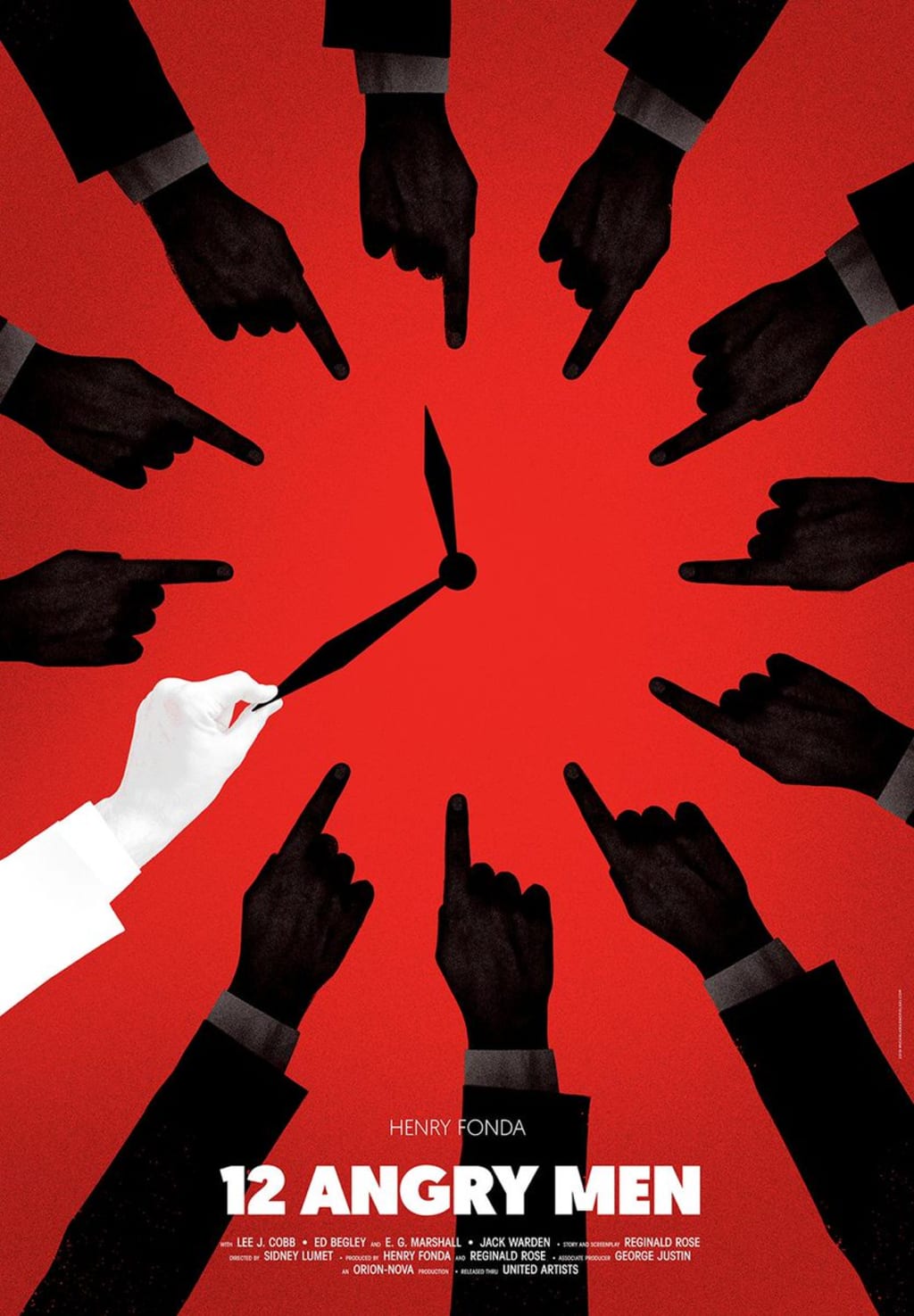A Filmmaker's Guide to: "12 Angry Men" (1957)
An Appreciation of Cinema (Pt.22)

In this chapter of ‘the filmmaker’s guide’ we are going to explore some of the films that have changed our outlook of the possibilities in cinema in some way, shape or form. These can include, but are not limited to: revolutionary cinematography, narratives that challenge the social structure and the common view, trademark styles of auter cinema, brilliant adaptations of novels and other works, films of philosophical value and films that touch our hearts and souls with their incredible underlying messages and morals. Within each of the films in this chapter there is a certain something that makes them special and a certain something that makes them linger long after we have watched them for the first time. Lasting impressions are difficult to create, but I think that the films we will briefly touch on in this chapter are some of the films we will never ever forget.
“12 Angry Men” (1957) dir. by Sidney Lumet

One of the most iconic courtroom dramas of all time was mostly just set in one room and had 12 main characters. The “12 Angry Men” became a sort of type for being able to create a story, a backstory and an entire court case without leaving the room. The film is not so much reliant on its cinematography as it is upon its dialogue and, being based on a play, means it was even more reliant on the performance of this dialogue by its characters. Known as one of the greatest courtroom dramas ever to be filmed, it was entered into the National Film Registry at the Library of Congress for being culturally important in 2007. The film, though based mostly on its dialogue, tells a great narrative about the way in which a boy is being convicted of murder whilst the intricate details are being revealed. When all but one vote in favour of his execution it must be up to that one to convince the others that the boy is innocent and does not deserve to die. One of the main things I found so incredible about this film is the way in which the characters use the small space and move around it, placing themselves almost symbolically within certain places within the room for certain atmospheres and effect. Plus, with Henry Fonda in the lead role, you can’t really go wrong.

The claustrophobic setting obviously increases the tension by large amounts as jurors shout at each other, talk over each other, argue and have it out with each other. You can feel the tension within the room and almost smell the sweat dripping off the one man who voted ‘not guilty’. The close confines of the room also make for great, however limited, cinematography. What we get is several close-ups on to situations, extreme close-ups on to ‘things’ that make sense at that particular time and tracking shots that follow people around the room. There are many other shots that come from above, but the most compelling ones are where we can see all of the twelve men in the shot, sitting at the table and discussing. It heightens all of the tension because you have no idea who is just going to get up and have it out. It represents this static tension in which movement, even speech, is not necessary. The personalities already established are enough to make the tension of the film somewhat extreme.

Basically, this film represents everything that can be done with courtroom drama that normally is not for the sake of showing the audience the crime and keeping ‘shock value’ interest. I am honestly surprised at that fact because this film proves that none of it is necessary. All you need is strong personalities, tension, amazing dialogue and a water cooler before you lock them in a small room together.

If there's a reasonable doubt in your minds as to the guilt of the accused, a reasonable doubt, then you must bring me a verdict of not guilty. If however, there is no reasonable doubt, then you must in good conscience find the accused guilty. However you decide, your verdict must be unanimous. In the event that you find the accused guilty, the bench will not entertain a recommendation for mercy. The death sentence is mandatory in this case. You are faced with a grave responsibility. Thank you, gentlemen.
- The Judge, "12 Angry Men" (1957)
About the Creator
Annie Kapur
200K+ Reads on Vocal.
English Lecturer
🎓Literature & Writing (B.A)
🎓Film & Writing (M.A)
🎓Secondary English Education (PgDipEd) (QTS)
📍Birmingham, UK






Comments
There are no comments for this story
Be the first to respond and start the conversation.